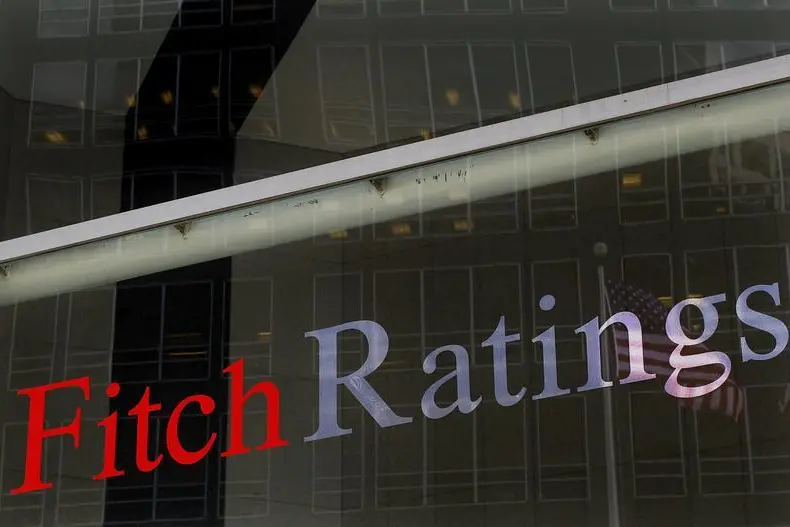PHOTO
Link to Fitch Ratings' Report(s):
Fitch Ratings-Hong Kong-November 27: Outlooks are mostly stable on sovereign ratings in the Middle East North Africa Region (MENA), but renewed weakness in oil prices and regional and domestic political developments continue to pose a downside risk to ratings in 2020, Fitch Ratings says.
Among the 14 Fitch-rated MENA sovereigns, only Tunisia (B+) is on a Negative Outlook, maintained in June 2019. In August, Fitch downgraded Lebanon to 'CCC' from 'B-', in light of intensifying pressure on the country's financing model. A 'CCC' rating indicates that default is a real possibility, and Fitch does not typically assign Outlooks at this rating level. To different degrees, both Lebanon and Tunisia have wide twin deficits, high and rising public and external debt, a challenging political environment and tepid economic growth.
Headline fiscal balances will continue to weaken across much of the Gulf Cooperation Council (GCC) in 2020. We expect governments to reverse some of the fiscal loosening that took place amid an oil revenue windfall in 2018, but this will not be sufficient to completely offset the expected moderation of oil prices amid continued pressure on production volumes. This will mean continued deterioration of most sovereigns' debt and net foreign asset metrics.
Only in Bahrain (BB-/Stable) and Oman (BB+/Stable) do we expect narrower headline deficits in 2020 as a result of their governments' fiscal efforts. Even here lower oil prices will present challenges. These countries have the weakest balance sheets in the region and are under the most pressure to reform.
Some sovereigns are demonstrating the ability to implement fiscal and economic reforms, including Egypt (B+/Stable) and Jordan (BB-/Stable), in both cases supported by IMF programmes, which we expect to be renewed in some form. In Egypt we forecast primary surpluses and a continued decline in government debt/GDP, which will nevertheless remain high at around 80% in FY21. Falling inflation, which dropped into the single digits in 2019, is giving the central bank space to lower rates to support growth. Jordan has substantially reduced its budget deficit and stabilised government debt/GDP, although weak growth and political risks complicate further consolidation. Morocco (BBB-/Stable) has had some success in raising social spending within a prudent fiscal framework.
Elsewhere, the outlook for reforms is even more challenging. In Iraq (B-/Stable), given popular pressure for spending on public services and our assumption that average annual oil prices will decline, we forecast a swing back to budget deficits in 2019-2021. In Tunisia, delayed government formation after the recent elections could hamper fiscal consolidation and economic reforms, with negative implications for the disbursement of official funding.
Reforms to stabilise public and external finances in both oil importers and some exporters risk further social and political backlash in 2020 in the absence of economic opportunities and improved living standards to satisfy rapidly growing, young and under-employed populations. Regional conflicts and rivalries, for example between Iran and Saudi Arabia, continue to pose risks to political and economic stability across the region, having already contributed to a downgrade of Saudi Arabia's ratings to 'A'/Stable in September 2019.
Sovereign ratings in the region are concentrated towards the top and bottom of the rating scale. The oil-producing states of the Gulf Cooperation Council (GCC), along with Israel (A+/Stable), mostly lie in the 'A' and 'AA' range, owing in large part to their high GDP per capita and strong external balance sheets. The countries of the Levant and North Africa mostly populate the 'B' and lower 'BB' range, generally reflecting shakier public or external finances and more acute political risks.
Fitch Ratings 2020 Outlook: Middle East and North Africa Sovereigns is available at
Contact:
Jan Friederich
Senior Director
+852 2263 9910
Fitch (Hong Kong) Ltd
19/F Man Yee Building
68 Des Voeux Road Central
Hong Kong
Krisjanis Krustins
Director
+852 2263 9831
Media Relations: Peter Fitzpatrick, London, Tel: +44 20 3530 1103, Email: peter.fitzpatrick@thefitchgroup.com.
Additional information is available on
ALL FITCH CREDIT RATINGS ARE SUBJECT TO CERTAIN LIMITATIONS AND DISCLAIMERS. PLEASE READ THESE LIMITATIONS AND DISCLAIMERS BY FOLLOWING THIS LINK:
Copyright 2019 by Fitch Ratings, Inc., Fitch Ratings Ltd. and its subsidiaries. 33 Whitehall Street, NY, NY 10004. Telephone: 1-800-753-4824, (212) 908-0500. Fax: (212) 480-4435. Reproduction or retransmission in whole or in part is prohibited except by permission. All rights reserved. In issuing and maintaining its ratings and in making other reports (including forecast information), Fitch relies on factual information it receives from issuers and underwriters and from other sources Fitch believes to be credible. Fitch conducts a reasonable investigation of the factual information relied upon by it in accordance with its ratings methodology, and obtains reasonable verification of that information from independent sources, to the extent such sources are available for a given security or in a given jurisdiction. The manner of Fitch's factual investigation and the scope of the third-party verification it obtains will vary depending on the nature of the rated security and its issuer, the requirements and practices in the jurisdiction in which the rated security is offered and sold and/or the issuer is located, the availability and nature of relevant public information, access to the management of the issuer and its advisers, the availability of pre-existing third-party verifications such as audit reports, agreed-upon procedures letters, appraisals, actuarial reports, engineering reports, legal opinions and other reports provided by third parties, the availability of independent and competent third- party verification sources with respect to the particular security or in the particular jurisdiction of the issuer, and a variety of other factors. Users of Fitch's ratings and reports should understand that neither an enhanced factual investigation nor any third-party verification can ensure that all of the information Fitch relies on in connection with a rating or a report will be accurate and complete. Ultimately, the issuer and its advisers are responsible for the accuracy of the information they provide to Fitch and to the market in offering documents and other reports. In issuing its ratings and its reports, Fitch must rely on the work of experts, including independent auditors with respect to financial statements and attorneys with respect to legal and tax matters. Further, ratings and forecasts of financial and other information are inherently forward-looking and embody assumptions and predictions about future events that by their nature cannot be verified as facts. As a result, despite any verification of current facts, ratings and forecasts can be affected by future events or conditions that were not anticipated at the time a rating or forecast was issued or affirmed.
The information in this report is provided "as is" without any representation or warranty of any kind, and Fitch does not represent or warrant that the report or any of its contents will meet any of the requirements of a recipient of the report. A Fitch rating is an opinion as to the creditworthiness of a security. This opinion and reports made by Fitch are based on established criteria and methodologies that Fitch is continuously evaluating and updating. Therefore, ratings and reports are the collective work product of Fitch and no individual, or group of individuals, is solely responsible for a rating or a report. The rating does not address the risk of loss due to risks other than credit risk, unless such risk is specifically mentioned. Fitch is not engaged in the offer or sale of any security. All Fitch reports have shared authorship. Individuals identified in a Fitch report were involved in, but are not solely responsible for, the opinions stated therein. The individuals are named for contact purposes only. A report providing a Fitch rating is neither a prospectus nor a substitute for the information assembled, verified and presented to investors by the issuer and its agents in connection with the sale of the securities. Ratings may be changed or withdrawn at any time for any reason in the sole discretion of Fitch. Fitch does not provide investment advice of any sort. Ratings are not a recommendation to buy, sell, or hold any security. Ratings do not comment on the adequacy of market price, the suitability of any security for a particular investor, or the tax-exempt nature or taxability of payments made in respect to any security. Fitch receives fees from issuers, insurers, guarantors, other obligors, and underwriters for rating securities. Such fees generally vary from US$1,000 to US$750,000 (or the applicable currency equivalent) per issue. In certain cases, Fitch will rate all or a number of issues issued by a particular issuer, or insured or guaranteed by a particular insurer or guarantor, for a single annual fee. Such fees are expected to vary from US$10,000 to US$1,500,000 (or the applicable currency equivalent). The assignment, publication, or dissemination of a rating by Fitch shall not constitute a consent by Fitch to use its name as an expert in connection with any registration statement filed under the United States securities laws, the Financial Services and Markets Act of 2000 of the United Kingdom, or the securities laws of any particular jurisdiction. Due to the relative efficiency of electronic publishing and distribution, Fitch research may be available to electronic subscribers up to three days earlier than to print subscribers.
For Australia, New Zealand, Taiwan and South Korea only: Fitch Australia Pty Ltd holds an Australian financial services license (AFS license no. 337123) which authorizes it to provide credit ratings to wholesale clients only. Credit ratings information published by Fitch is not intended to be used by persons who are retail clients within the meaning of the Corporations Act 2001
Fitch Ratings, Inc. is registered with the U.S. Securities and Exchange Commission as a Nationally Recognized Statistical Rating Organization (the "NRSRO"). While certain of the NRSRO's credit rating subsidiaries are listed on Item 3 of Form NRSRO and as such are authorized to issue credit ratings on behalf of the NRSRO (see





















